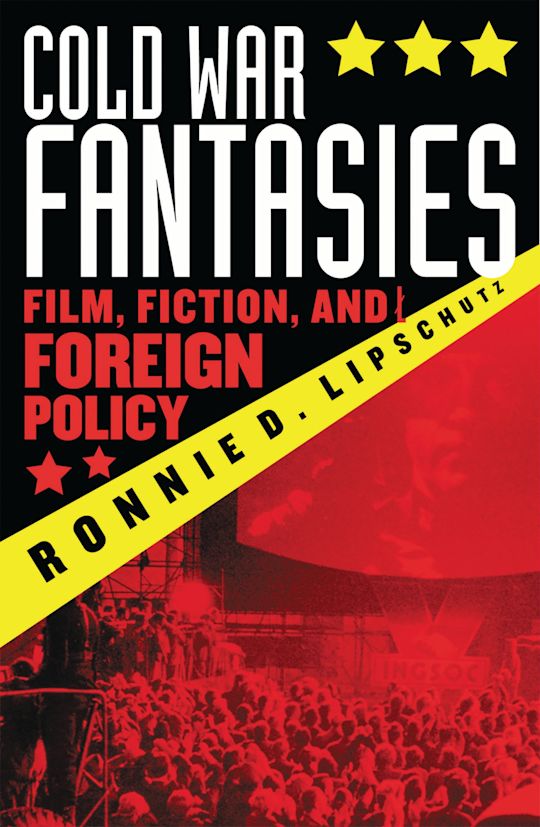- Home
- ACADEMIC
- Politics & International Relations
- Introduction to International Relations
- Cold War Fantasies
Inspection copy added to basket
This title is available for inspection copy requests.
Please note our inspection copies are only available in ebook format, and are fulfilled by VitalSource™. If an ebook isn’t available, please visit our inspection copy page for more information.
Buy from Bloomsbury eTextBooks
You are now leaving the Bloomsbury Publishing website. Your eBook purchase will be with our partner https://www.vitalsource.com.
Your credit card statement will show this purchase originating from VitalSource Technologies. They will also provide any technical assistance you might require.
You must sign in to add this item to your wishlist. Please sign in or create an account
Description
As memories of the Cold War recede, it becomes more and more difficult to remember what it was about and why it evoked such feelings of intensity and fatalism. Fortunately, we have a gold mine of movies and novels to help us recall why an entire generation of Americans grew up ducking under school desks in air raid drills and stocking the family bomb shelter. Cold War Fantasies retrieves those times, based on the idea that a nation's history, self-concept, and collective anxiety are reflected in popular culture. In Cold War Fantasies, Ronnie Lipschutz combines an historical account of foreign and domestic politics from 1945 to 1995 with summaries and analyses of thirty novels and films contemporaneously published and produced. Lipschutz rejects the standard line on the Cold War and critically examines the impacts and effects of language and images on politics. Viewing those films and reading those novels enables the reader to come away with a clearer sense of how people felt during the Cold War period-about themselves, about 'the enemy,' and about the world while living in the shadow of the atomic bomb.
Table of Contents
Chapter 2 Preface: What Did You Do in the Cold War, Daddy?
Chapter 3 A Note to the Reader
Chapter 4 Film, Fiction, American Politics
Chapter 5 From Hot War to Cold War
Chapter 6 Reds among Us?
Chapter 7 Spies!
Chapter 8 Nukes!
Chapter 9 The Final Frontier
Chapter 10 Vietnam, Over and Over
Chapter 11 Renewing the Cold War
Chapter 12 New Competitors, Old Enemies
Chapter 13 Now What?
Chapter 14 Notes
Chapter 15 Resources
Chapter 16 Bibliography
Chapter 17 Index
Product details
| Published | 16 Oct 2001 |
|---|---|
| Format | Ebook (Epub & Mobi) |
| Edition | 1st |
| Extent | 256 |
| ISBN | 9780742573949 |
| Imprint | Rowman & Littlefield Publishers |
| Publisher | Bloomsbury Publishing |
About the contributors
Reviews
-
Useful for gathering ideas for a foreign policy and film/novel course.
Choice Reviews
-
Lipschutz presents an accessible, yet thoughtful account of the political activities and cultural climate of the Cold War, using discussion on films (mostly) and some fiction as pedagogical tools. Certainly this book could nicely shape a course, but self-study is as convenient as the local video store.
Reference and Research Book News
-
The historical narrative that drives the plot forward is brilliantly executed. Lipschutz's narrative is deceptively easy to read. He skillfully weaves the two texts together and packs a lot of information into a confined space without ever losing his story's momentum.
Millennium
-
Lipschutz provides an accessible pedagogical tool to enliven historical studies with film and illuminate broader political and economic issues on cinema and literature.
Film & History: An Interdisciplinary Journal
-
What can films like Bladerunner or Invasion of the Body Snatchers and novels such as 1984 or Rising Sun, tell us about the Cold War and U.S. foreign policy? Quite a lot, it turns out. In a delightful book suitable both for teaching and for a popular audience, Ronnie Lipschutz provides a fresh and accessible account of U.S. foreign policy since World War II. His lucid and entertaining analysis moves easily from fact to fiction, and back again, highlighting the continuities and interconnections between popular culture and state policy.
Jutta Weldes, University of Bristol, U.K.



































